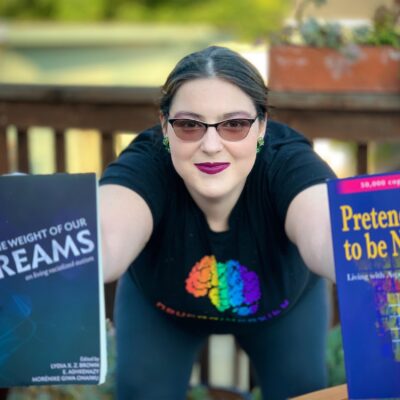Esperanza Padilla Social Science
Identity Formation and Affirmation in Autistic Individuals
Autism is typically understood as a disorder rather than an identity. However, the emergence of the autism self-advocacy movement and virtual spaces suggests that autism is more than a diagnosis for many individuals. Esperanza Padilla’s research seeks to delve beyond the medical models interpretation of autism to find out how autistic individuals develop their sense of self. Padilla’s research will utilize both survey data and in-depth interviews to gather information about autistic adults life experiences. She will then analyze her findings using the sociological framework of Symbolic Interactionism by Herbert Mead. The insight of this research will contribute to our understanding of how the identities of autistic adults and children may be supported over their lifetime, and how having an affirming identity may impact them in school and the workplace.
Photo Caption:
Esperanza displays two books that have inspired her and her project:
From (left to right):
All The Weight of Our Dreams: On Living Racialized Autism, editors: Lydia Brown, Mornike Giwa-Onaiwu, E. Ashkenazy.
Pretending To Be Normal: Living With Asperger’s Syndrome, by Liane Holliday Willey
